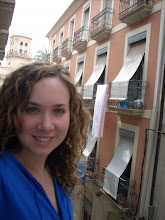Perhaps the most striking point that comes from reading Unequal Childhoods is that child development comes from the social structures in which children are raised. Their childhood interactions - their ability to organize, their creativity, their views on responsibility, their manner of speech and interaction with authority figures - all help to shape their later-life skills. Economic status (and strain), and thus the opportunities available to them, greatly determines how children will be when they are adults.
Lareau contrasts the upbringings, interactions and extra-curricular activities of children within middle-class, working-class and poor families. Children from middle-class families are taught to interact with adults and to question authority. Because of this, they often cultivate a sense of entitlement. Children from working-class and poor families, however, experience a divide between themselves and authority figures. Much less emphasis is placed on interaction between children and adults. The activities out of school are most likely regarded as mere "child's play," with little importance given to the child's development.
This stark contrast between middle-class families and working-class or poor families is one that I had vague notions about during my own upbringing. Upon reflecting on my middle-class upbringing, I have an understanding of what Lareau details in her book. In my family, much importance was placed on structured extra-curricular activities. My parents oftentimes sacrificed their free time in order to help foster my interests.
Besides touching upon middle-class family life, Lareau also makes a lot of great points about working-class and poor children growing up in urban environments. Many, like the ones mentioned in the book, do face daily difficulties like where to wash clothing or when the next paycheck (or other source of income) will come. It's no wonder that with such economic difficulties, less importance and attention is given to a child's schoolwork. It is understandable that when faced with illness and economic troubles, many families must sacrifice education for mere survival.
This is, perhaps, one fact that is all too prominent in urban schools and one that must never be ignored. As a future teacher, in an urban environment or otherwise, it is critical to remember that students come from vastly different family backgrounds. The experience of teaching in the inner city is as diverse as its students and their cultural structures.
Sunday, March 22, 2009
Subscribe to:
Post Comments (Atom)

No comments:
Post a Comment